The Bà Thu Bồn Festival is a distinctive and time-honored folk festival of the communities living along the Thu Bồn River. It takes place annually from the 10th to the 12th day of the second lunar month…
The Bà Thu Bồn Festival is a distinctive and long-standing folk festival of the communities residing along the Thu Bồn River. It is held annually from the 10th to the 12th day of the second lunar month in Thu Bồn Village, Duy Tân Commune, Duy Xuyên District, Quảng Nam Province (now part of Thu Bồn and Nông Sơn Communes, Da Nang City).
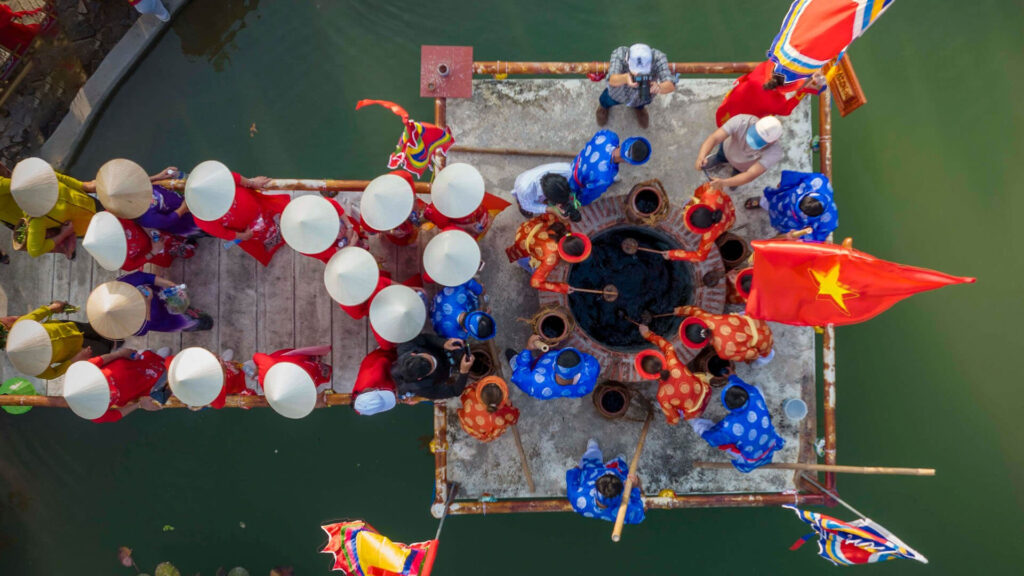
This occasion is when local residents honor and express gratitude for the merits of Lady Thu Bồn—the water goddess who grants protection—while praying for favorable weather, bountiful harvests, and a peaceful, prosperous life. Over more than 300 years of formation and development, the Ba Thu Bồn Festival has become an important spiritual and cultural tradition, embodying the heritage of “remembering the source when drinking water” and reflecting the strong sense of community solidarity among the people.
Origin and Legend of Lady Thu Bồn
The worship of Lady Thu Bồn originated in the early days of reclaiming the ancient land of Quảng Nam, when Vietnamese settlers from the North migrated to live along the Thu Bồn River and engaged in cultural exchange with the indigenous Cham people. Over time, the legends of Lady Thu Bồn became deeply rooted in the spiritual life of the community, forming the foundation for this unique traditional festival.
Although various legends exist, Lady Thu Bồn is consistently portrayed as a woman of virtue and talent, a symbol of peace and prosperity, and revered as a sacred Mother who offers protection to the land. In fact, during the Nguyễn Dynasty, she was conferred the title of Thượng đẳng thần (Supreme Deity) in recognition of her merits and divine blessings for the community. It is precisely this interweaving of history and legend that has endowed the Ba Thu Bồn Festival with enduring vitality and a unique spiritual and cultural appeal throughout the centuries.
Traditional Rituals in the Ceremonial Part
The ceremonial part of the Ba Thu Bồn Festival takes place in a solemn manner, expressing the villagers’ reverence toward the goddess. The sequence of rituals usually begins on the evening of the 10th and lasts until the 12th day of the second lunar month. The principal rituals include:
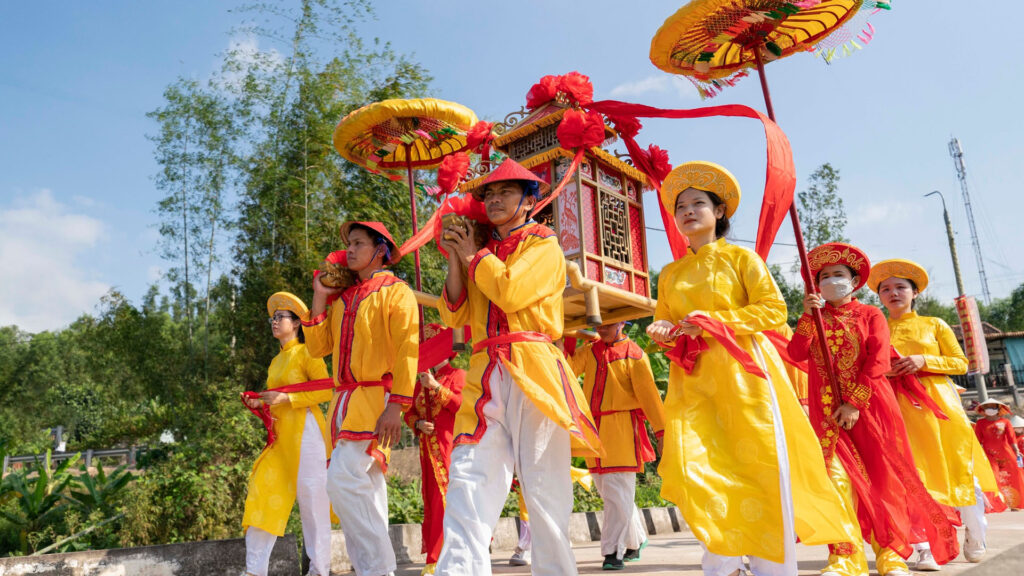
The Procession of the Imperial Decree (Lễ rước sắc): Held on the morning of the 11th day of the second lunar month, this is the procession of the imperial decree bestowed by the Nguyễn Dynasty upon Lady Thu Bồn. A solemn parade—featuring ceremonial flags, canopies, the palanquin carrying the decree, drums and gongs, along with elders and women in traditional attire—escorts the decree to the Lady’s Shrine (Dinh Bà). This ritual symbolizes the reverence for Lady Thu Bồn’s role in both folk beliefs and history.
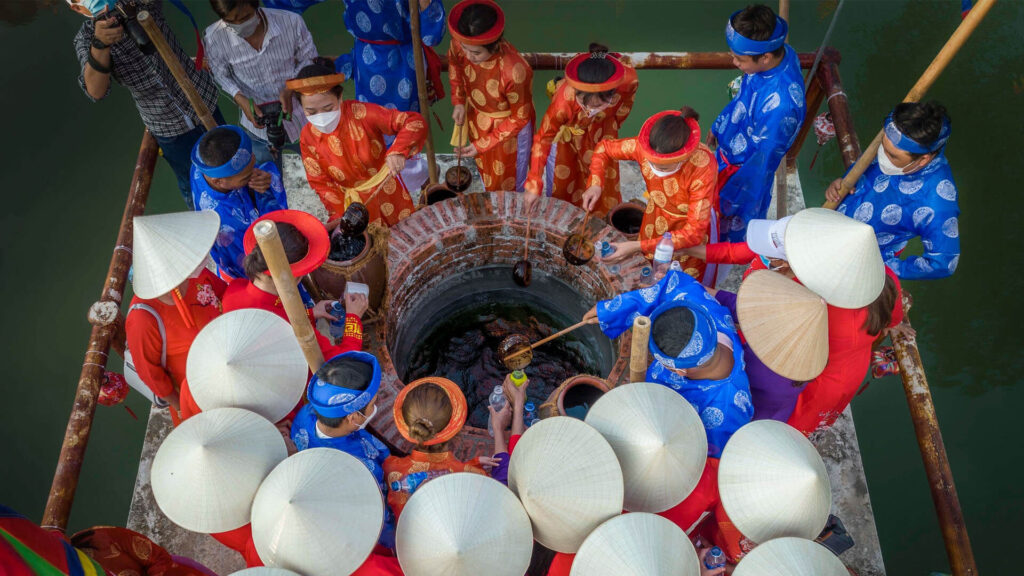
The Water Procession (Lễ rước nước): Taking place at dawn on the 12th day of the second lunar month, hundreds of participants depart from the Lady’s Shrine (Dinh Bà) and travel upstream along the Thu Bồn River to fetch water from its source. The sacred water vessel is then carried back to the shrine amid the resounding beats of drums and gongs, symbolizing the reception of the vital energy bestowed by heaven and earth. This is regarded as the most vibrant and distinctive ritual of the ceremonial part.
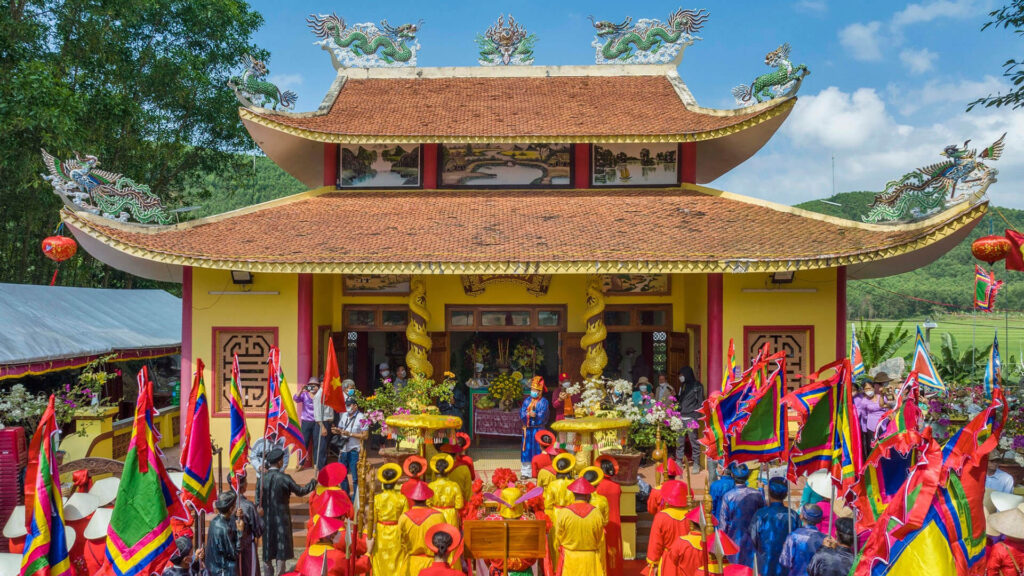
The Grand Offering Ceremony (Lễ đại tế): This is the principal ritual, held at Lady Thu Bồn’s Shrine (Dinh Bà Thu Bồn) on the morning of the 12th day of the second lunar month. Local residents prepare solemn offerings to present to Lady Thu Bồn, typically including a buffalo or young ox cleansed and painted red, a large tray of sticky rice, betel and areca, incense, candles, and local produce. The grand ceremony unfolds in a dignified atmosphere with the participation of numerous village elders and distinguished guests, praying for national peace and prosperity, favorable weather, and abundance for all households.
In addition, the ceremonial part also includes other rites such as the Arrangement Ceremony (lễ bài trí)—the preparation and decoration of the altar and offerings starting from the 10th day of the lunar month—and concludes with the Return of the Imperial Decree (lễ hoàn sắc), in which the decree is escorted back to its original place after the offering ceremony, bringing the rituals to a complete and harmonious close. All of these ceremonies are imbued with reverence and folk beliefs, vividly reflecting the Mother Goddess worship tradition of the communities along the Thu Bồn River.
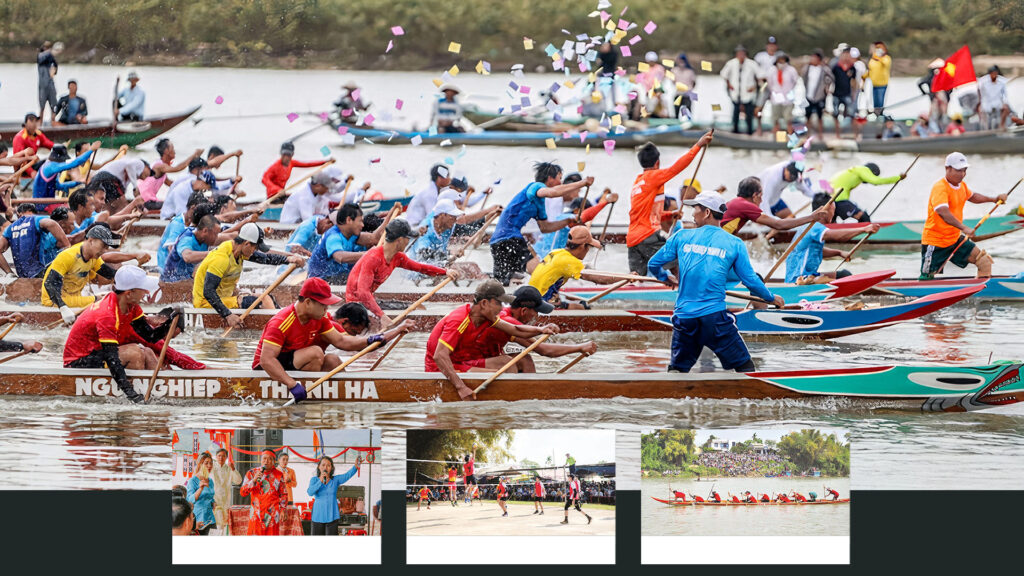
Festive Activities and Distinctive Folk Games
Following the solemn ceremonies comes the jubilant festive part, where both visitors and locals immerse themselves in a lively atmosphere. A variety of cultural, sporting, and folk activities are organized, offering participants a rich and engaging experience, such as:
- Traditional boat racing on the Thu Bồn River
- Folk games (tug-of-war, stick pushing, Chinese chess, etc.)
- Performances of traditional folk arts such as hát bội, bài chòi, and hò khoan
- Lantern floating on the river to pray for peace
- Enjoying local cuisine
The festive part of the Ba Thu Bồn Festival truly transforms the banks of the Thu Bồn River into a vibrant cultural stage. The resounding beats of festival drums, the sky filled with flags and flowers, together with the cheers, songs, and dances, create a radiant picture of celebration, leaving an unforgettable impression on all participants.
The Cultural and Touristic Roles and Values of the Festival
For the people of Da Nang, the Ba Thu Bồn Festival is not merely a religious practice but has become an indispensable spiritual nourishment, enriching the cultural life of the community. It is regarded as the largest form of intangible cultural heritage associated with Mother Goddess worship currently observed in Da Nang.
Through the festival, precious traditional cultural values are preserved and passed down through generations—from ancient ceremonial rituals to characteristic folk songs and games. The festival is also an occasion to strengthen neighborhood bonds and reinforce the spirit of solidarity among the communities living along both banks of the Thu Bồn River.
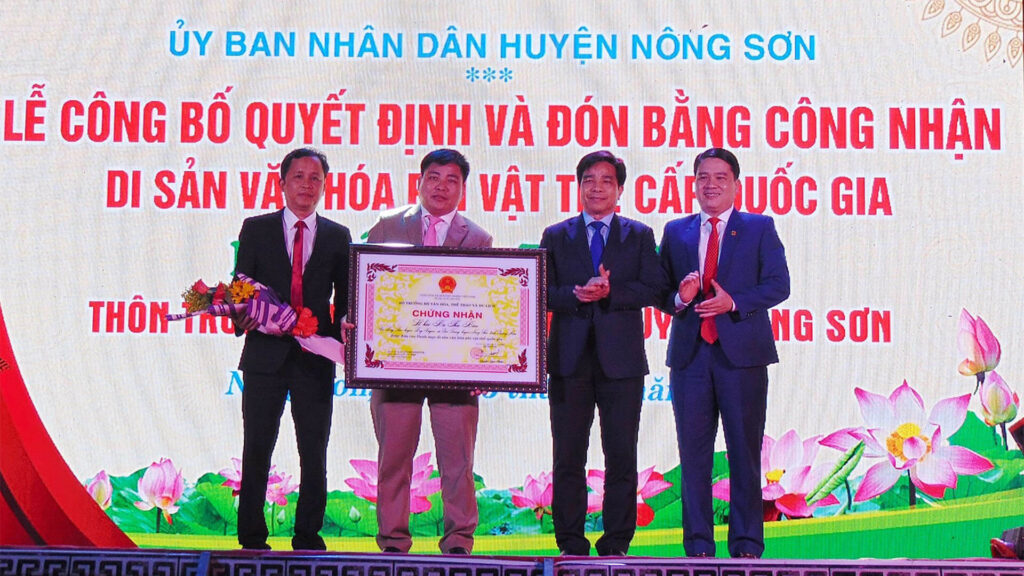
In terms of heritage, the Ba Thu Bồn Festival was officially recognized as a National Intangible Cultural Heritage by the Ministry of Culture, Sports and Tourism in 2022. This recognition affirms the festival’s importance within the national cultural treasury, while laying the foundation for its preservation and the promotion of its values in the new era. Both the local authorities and the people of Quảng Nam have made continuous efforts to safeguard the festival, regarding it as a shared responsibility and source of pride, with the aim of passing down this unique folk belief heritage to future generations.
It can be said that the Ba Thu Bồn Festival is not only an invaluable cultural asset of the locality but also holds great potential for the development of cultural and spiritual tourism. The festival contributes to showcasing the image of Da Nang as a land rich in tradition to friends and visitors from all over the world, while simultaneously fostering the preservation of fundamental cultural values within modern life.
DANANG CENTER FOR TOURISM PROMOTION